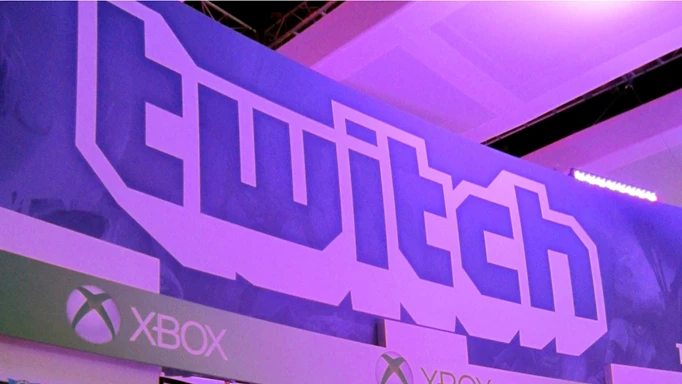Twitch's DMCA Notices Create Backlash Amongst Their Community

Many people consider video games to be an immersive experience - video, sound effects, music, and story all come together to bring a player into a new world. Streamers have recognised this more than anyone else - and they've sought to bring video games to the general public by adding their own commentary and reactions to the mix. Streamers also help people have the experience of playing their favourite game with a friend, an experience that many have lacked since the start of this pandemic.
There's no doubt that streamers are important to the gaming populace, and even to people who are unfamiliar with video games. This is why platforms such as Twitch and YouTube have soared in popularity in the past few years. These platforms gave people the notion that anyone could get famous by just being themselves and sharing their thoughts with the world. Streamers such as Loserfruit and MrBeast have made their mark on both gaming and even popular culture, as more and more people tune in.

 Click to enlarge
Click to enlargeThe impact streamers have, however, might not last, as recent controversy from Twitch might imply. At the height of the COVID-19 lockdowns, back in May, Twitch was hit with a multitude of DMCA copyright notices. Over the summer, these notices kept coming in, leaving both Twitch and the streamers that power it confused. Without much communication from the streaming platform itself, the only word that streamers and influencers received on the matter were emails citing that the channel in question had violated DMCA standards. These emails were vague and did not specify which videos were affected by these claims. Unlike YouTube's studio mode, which shows content creators exactly which videos (and sometimes even which timestamps) violate copyright, Twitch left its creators in the dark - at least until recently.
With more channels being affected by the day, Twitch finally decided to speak up - only this was nearly six months later. On November 11, 2020, Twitch released a lengthy Twitter thread and a blog post on their official website, both of which detailed the issue at hand. After months of ambiguity and confusion, Twitch users finally were able to find out what was going on with all of the DMCA emails and notifications they'd received. They were met with more confusion; however, as Twitch's response was not what many were expecting.
After years of being the creator's platform, a place where users could share experiences with one another, Twitch decided to take an alternative approach to these DMCA claims. It cited that the major reason for the claims was related to the music used in streams. Their solution - simply mute any audio or game sound effects.
This seems like a relatively innocuous response, until realising that music and sound effects are part of a game's immersion. Without them, a streamer is simply talking over silence, leaving people confused about the game's tone, story, or message. Twitch recommended playing some of their copyright-free Twitch Soundtrack instead, which many people were not alright with, as this music takes whatever experience game publishers and developers would want their players to have and completely shoves it aside.
Twitch apologised for its lack of transparency and copyright education in both its blog post and its Twitter thread, stating the following:
Creators, we hear you. Your frustration and confusion with recent music-related copyright issues is completely justified. Things can–and should–be better for creators than they have been recently, and this post outlines our next steps to get there. Moving forward, we’ll be more transparent with what’s happening and what tools and resources we’re building to help.
They promised copyright-themed livestream Q and As following this announcement, even going so far as to promise a Copyright Academy, similar to YouTube's Creator Studio courses and activities. Many people thought these promises were too little too late, as Twitch also stated in the same blog post that streamers should familiarise themselves with a game's lengthy EULA statements to find out whether music should be streamed or not. Many fans of older games are upset by this response, as many older game studios did not anticipate their content being streamed to multitudes of people, and did not mention such in their EULA statements.
However, if these companies changed their stance on streaming game audio or music, they could still come after retro game streamers, despite nothing in the EULA stating that they would do so.
Even fans of modern games are upset by this response from Twitch, as it implies that the company will do nothing to protect the streamers that fuel it. Rather, Twitch will simply throw its creators into the tangled mess of copyright, refusing to back them up or even stand by their decision to use in-game music instead of Twitch's copyright-free options.
Many Twitch users and their fans believe that Twitch should protect its streamers from copyright, fighting these claims with blanket protection statements, allowing users to stream music. However, Twitch is doing nothing of the sort, as users' old clips and VODs, some even years old, are being DMCA flagged simply for featuring in-game music.
Twitch's response to this? Mute the game! They've repeated this sentiment numerous times in their cross-platform statements, and even in their blog post. People are angered by this, as the soundtrack is one of the integral parts of gameplay. Taking it away takes half of the gameplay experience from both the streamer and their viewers. Twitch streamers aren't making money by redistributing a game to a wide audience; rather, they are making money adding their commentary and personality to the mix, giving users the feeling that they are experiencing a game with a friend. These copyright claims would make sense if users were simply uploading raw, unedited gameplay footage, but adding their personal flair gives the gameplay a new meaning, which many cite as meeting Creative Commons guidelines.
Since the announcement on Wednesday, people have been up in arms about Twitch as a platform. Many users threatened to leave for another streaming service, whereas others decided to continue streaming until Twitch made it near-impossible to continue. Streamers have the right to be concerned, as their livelihood is being threatened because of their desire to give players (and themselves) the full experience of playing a game.
Removing the music is not as easy as it sounds in theory, as it not only removes audio, but it also removes part of the experience, too. In the world of a streamer, this removes some of their clip's atmosphere, which leaves viewers less inclined to click on it, as they can view content with the actual music elsewhere. Until Twitch sorts out these internal problems and backs up their streamers, there will be backlash and potentially a great migration to greener pastures elsewhere.
Images via Twitch
